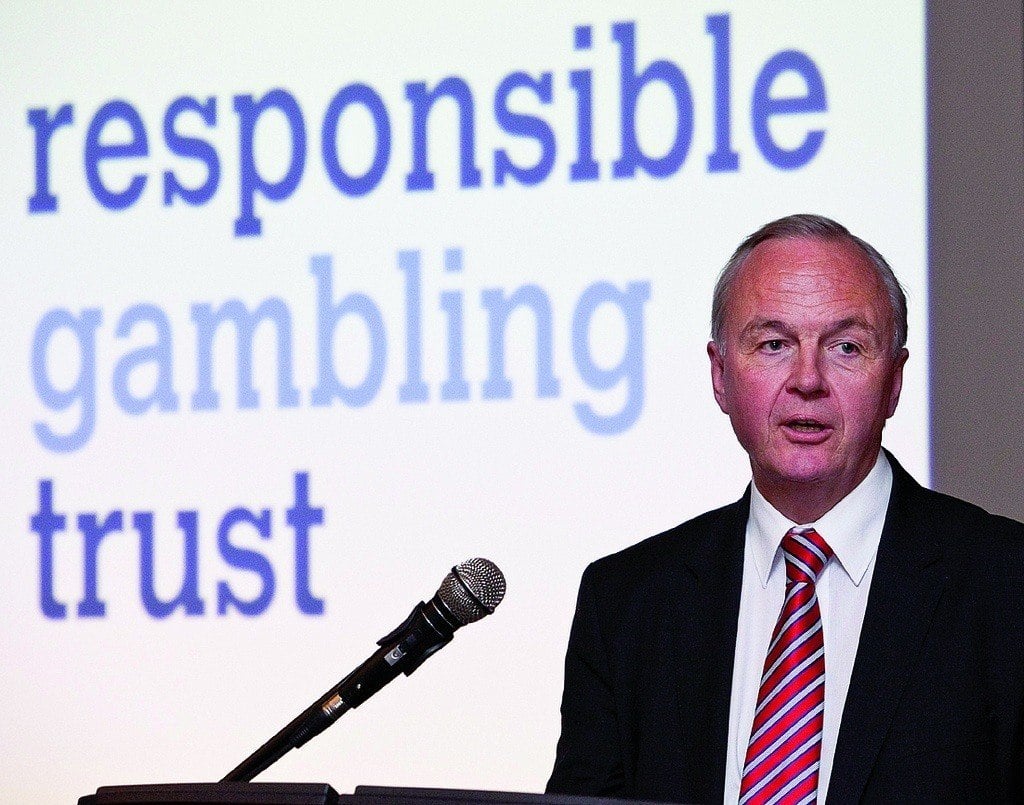Guardian Newspaper Criticizes Responsible Gambling Trust “Conflict of Interest”
Posted on: January 7, 2016, 12:14h.
Last updated on: January 7, 2016, 12:14h.

Neil Goulden, head of the Responsible Gambling Trust (RGT) in the UK, has been called out by Britain’s Guardian newspaper for an apparent conflict of interests.
As chair of the RGT, Goulden presides over the country’s leading charity devoted to minimizing problem gambling, and yet he is also a former chair of the Association of British Bookmakers ABB), an industry lobby group.
The positions were held concurrently between 2012 and mid-2014.
Goulden’s affiliations to both groups are no secret, of course; as a former board member of Ladbrokes and former chairman of the Gala Coral Group, he is very much a public face of the gambling industry.
But, as the Guardian opined this week, the fact that RGT is chaired by a doyen of the industry and funded by donations from gambling companies raises questions about its integrity and the balanced nature of its research.
As well as funding education, prevention, and treatment services for problem gamblers, RGT commissions research devoted to broadening the understanding of problem gambling issues.
But because of its affiliations, does it avoid asking the really tough questions to the industry, and is its research program completely independent of industry interests?
Goulden Responds
When contacted by the Guardian, Goulden insisted that his position as an industry insider, and the participation of the industry as whole, is, in fact, integral to researching and ultimately understanding problem gambling.
“[The gaming industry] would not have released data or have taken the actions it continues to take in prevention of harm without my personal influence and urging,” he said. “I have continually urged the industry to do more to protect at-risk customers and to share best practice and to better communicate what they are doing and its effect.
“True harm minimization can only be fully effective if it engages with the industry and that the 100,000 people employed in the industry take their social responsibilities seriously,” he continued.
“The recent RGT research has given clear pointers to anyone committed to reducing harm and the subsequent actions taken by the government, the regulator and the industry have significantly reduced volumes from the group of at-risk customers.”
FOBT Criticism
However, the RGT has been criticized by anti-gambling groups for its failure to condemn the UK’s notorious fixed-odds betting terminals (FOBTs), prevalent in high-street bookmaking shops across the country.
These machines have been dubbed “the crack cocaine of the high street” because they enable customers to bet up to £100 ($146) every 20 seconds on digital casino games like roulette.
“RGT refused to address the key question of whether FOBTs cause gambling related harm due to their addictive characteristics,” complained a spokesperson for the Campaign for Fairer Gambling, of an RGT study on the subject, published in 2013 when Goulden was chair of both the RGT and ABB.
“We are worried that the chair of the trust was busy devising lobbying strategies for the bookmakers to improve their image when this research was first announced. This needs to be looked at.”
Goulden responded that the research questions of the 2013 study were devised by the UK Gambling Commission and the Minister for the Department of Culture, Media and Sport, and added he had no influence on the commissioning, presentation, or interpretation of the findings.
No comments yet